♣ Golden Boot
The Premier League Golden Boot is an annual association football award presented to the leading goalscorer in the Premier League. For sponsorship purposes, it was called the Carling Golden Boot from 1994 to 2001, the Barclaycard Golden Boot from 2002 to 2004, the Barclays Golden Boot from 2005 to 2016, the Cadbury Golden Boot from 2017 to 2020, and the Coca-Cola Zero Sugar Golden Boot for 2021. Since 2022, it is referred to as the Castrol Golden Boot. In addition to the trophy, winners of the Golden Boot are usually given £1,000 for every goal they scored throughout the season to donate to a charity of their choice, although Robin van Persie was given £30,000 after scoring 26 goals in the 2012–13 season.
▲ Castrol Golden Boot
▼ Connection Pages
The Premier League was founded in 1992, when the clubs of the First Division left the Football League and established a new commercially independent league that negotiated its own broadcast and sponsorship agreements. The newly formed league had no sponsor for its inaugural season until Carling agreed to a four-year £12 million deal that started the following season, and it was simply known as the Premier League in its first year. As a result, the award was called the "Premier League Golden Boot" when Teddy Sheringham received the inaugural award in 1993. Originally consisting of 22 teams, the league contracted to 20 teams after the 1994–95 season; this reduced the number of games played from 42 to 38.
Thierry Henry has won the Golden Boot on four occasions, more than any other player. Jimmy Floyd Hasselbaink and Dwight Yorke were the first non-English and non-European winners, respectively, when they shared the award with Michael Owen in 1999. Alan Shearer and Henry have won the award in three consecutive seasons. Kevin Phillips, Henry, Cristiano Ronaldo, Luis Suárez and Erling Haaland won the European Golden Shoe in the same season as the Premier League Golden Boot, with Henry achieving this on two occasions (2004 and 2005). Shearer, Hasselbaink and Van Persie are the only players to win the Golden Boot with two clubs.
Haaland scored the most goals to win the Golden Boot, with 36 in 2022–23. With 35 games played in the season, he also recorded the highest goals-to-games ratio to win the award, of 1.03. Nicolas Anelka scored the fewest goals to clinch the award outright, with 19 goals in 2008–09. The all-time record for lowest number of goals scored to be bestowed the award, however, is 18 goals; this was achieved during the 1997–98 and 1998–99 seasons, when the award was shared between three players both times. The latter season marked the last time the Golden Boot was shared until 2010–11, when Dimitar Berbatov and Carlos Tevez both scored 20 goals that season to tie for the award. Since then, the award was shared two more times: in 2018–19 (by three players) and in 2021–22 (two players). The Premier League Golden Boot is currently held by Erling Haaland with 36 goals.
▲ Erling Haaland (2023–24 Win)
♣ Golden Glove
The Premier League Golden Glove is an annual association football award presented to the goalkeeper who has kept the most clean sheets in the Premier League. In football a team's defense or goalkeeper may be said to "keep a clean sheet" if they prevent their opponents from scoring any goals during an entire match. For sponsorship purposes, it has been referred to as the Barclays Golden Glove since its inception during the 2004–05 season until the 2015–16 season and as the Cadbury Golden Glove from 2017–18 season to 2019–20 season. For the 2020–21 season, it was known as the Coca-Cola Zero Sugar Golden Glove and for the 2021–22 season, it is known as the Castrol Golden Glove.
The Premier League was founded in 1992, when the clubs of the First Division left the Football League and established a new commercially independent league that negotiated its own broadcast and sponsorship agreements. Originally, the Golden Glove could only be won outright by a single player; should there have been a tie, the goalkeeper with the superior clean sheets-to-games ratio received the award. However, starting in the 2013–14 season, the Golden Glove is shared by goalkeepers with an equal number of clean sheets, regardless of the number of games they played.
In 2005, the inaugural Premier League Golden Glove was awarded to Petr Čech of Chelsea. Čech's 24 clean sheets in a single season remains the current record. Since 2005 Čech and Joe Hart have won the award on the most occasions with four successes each, with Čech the only goalkeeper to have won the award with two different teams (Chelsea and Arsenal). Pepe Reina was the first goalkeeper to achieve back-to-back wins of the award, managing to do so in three consecutive seasons between 2005 and 2008. Joe Hart later repeated the achievement with Manchester City between 2010 and 2013, as did Ederson with the same club between 2020 and 2022.
During the 2008–09 season, Edwin van der Sar surpassed Čech's previous record of ten consecutive clean sheets by reaching fourteen. During his streak, van der Sar went 1,311 minutes without conceding a goal. In the process, he broke both Čech's Premier League record (1,025 minutes), Steve Death's Football League record (1,103 minutes) and also the all-time league record in Britain (1,155 minutes) for most consecutive scoreless minutes.
▲ Petr Čech (4 Season Win)
♣ Player of the Season
The Premier League Player of the Season is an annual association football award presented to players in England, which recognises the most outstanding player in the Premier League each season. The recipient is chosen by a panel assembled by the league's sponsors consisting of members of "football's governing bodies, the media and fans", and is announced in the second or third week of May. For sponsorship purposes, from 1994 to 2001 it was called the Carling Player of the Year; from 2001 to 2004 as the Barclaycard Player of the Year; and from 2004 to 2016 as the Barclays Player of the Season. Since the 2016–17 season, it is called the EA Sports Player of the Season.
The Premier League was founded in 1992, when the clubs of the First Division left the Football League and established a new commercially independent league that negotiated its own broadcast and sponsorship agreements. The newly formed league had no sponsor for its inaugural season until Carling agreed to a four-year £12 million deal that started the following season. That same season, Carling introduced individual awards for players, such as the Golden Boot. However, the Player of the Month and Player of the Season awards were only first bestowed during the 1994–95 season. The first Player of the Season award was given to Blackburn Rovers striker Alan Shearer, who won the Premier League title with his team and the Golden Boot that season.
Thierry Henry, Cristiano Ronaldo, Nemanja Vidić and Kevin De Bruyne have been Player of the Season on two occasions each and are the only players to have won the award more than once, with Ronaldo having achieved this in consecutive years (2007 and 2008). Eight players were the Premier League's leading goalscorer and won the Golden Boot alongside the Player of the Season award. Four of these players – Kevin Phillips, Henry, Ronaldo and Luis Suárez – went on to win the European Golden Shoe in the same season. 11 players have won the Premier League trophy with their respective clubs in the same year they received the award, with Ronaldo and Vidić each accomplishing the feat on two occasions with Manchester United. Ronaldo is the only player to be named Player of the Season and win the FIFA World Player of the Year; when he accomplished this in 2008, he became the first player from the Premier League to be voted the world's top footballer. In 2023 Manchester City's Erling Haaland became the first player in Premier League history to win both Player of the Season and Young Player of the Season awards for the same campaign.
The current holder of the award is Manchester City's Phil Foden.
▲ Phil Foden (2023–24 Win)
♣ Young Player of the Season
The Premier League Young Player of the Season is an annual English football award, presented to the best player aged 23 or younger in the Premier League. For sponsorship purposes, it is known as the Hublot Young Player of the Season since the 2020–21 season, after being known as TAG Heuer Young Player of the Season right after its inception during the 2019–20 season.
Trent Alexander-Arnold of Liverpool was the first winner of the award. Manchester City player Phil Foden has won the most awards with two. The current holder of the award is Chelsea midfielder Cole Palmer, who is the first player to receive it while not winning the league.
▲ Cole Palmer (2023–24 Win)
♣ Manager of the Season
The Premier League Manager of the Season is an annual association football award presented to managers in England. It recognises the most outstanding manager in the Premier League each season. The recipient is chosen by a panel assembled by the league's sponsors and is announced in the second or third week of May. The award was established during the 1993–94 season by then-league title sponsor Carling. For sponsorship purposes, it was called the Carling Manager of the Year from 1994 to 2001, the Barclaycard Manager of the Year from 2001 to 2004, and since 2004 known as the Barclays Manager of the Season.
In 1994, the inaugural Manager of the Season award was given to Manchester United manager Sir Alex Ferguson for retaining the league championship. The current holder of the award is Manchester City manager Pep Guardiola.
The most awards won by a single manager is eleven, achieved by Sir Alex Ferguson between 1994 and his retirement in 2013. He accounted for more than half of the awards in that period of time. In 1998 Arsène Wenger became the first non-British manager to win the award, and received it on two further occasions with Arsenal. José Mourinho, Pep Guardiola and Jürgen Klopp are the only managers other than Sir Alex Ferguson and Wenger to have won the award on more than on one occasion, with the two first being the only managers other than Ferguson to win the award in consecutive seasons.
Five managers have won the award without winning the Premier League trophy in the same season, reflecting the weight of their achievements: George Burley in 2000–01, having guided Ipswich Town to fifth place in the league, after only securing the club's promotion from the First Division the previous season; Harry Redknapp in 2009–10, for steering Tottenham Hotspur to a top-four finish for the first time in twenty years, Alan Pardew in 2011–12, having guided Newcastle United to their highest position in nine years, Tony Pulis in 2013–14, for steering Crystal Palace from bottom of the league in November to an 11th-place finish, and Jürgen Klopp in 2021–22, after finishing second with Liverpool in a tight battle for the title, finishing just one point off the top despite being 14 points behind in January.
History
The Premier League was formed in 1992, when the members of the First Division resigned from The Football League. These clubs set up a new commercially independent league that negotiated its own broadcast and sponsorship agreements. The inaugural season had no sponsor until Carling agreed to a four-year £12 million deal that started the following season. That same season, Carling introduced the Manager of the Month and Manager of the Season awards, in addition to the existing manager of the year award presented by the League Managers Association.
The first Manager of the Season award was presented to Sir Alex Ferguson after winning the Premier League with Manchester United for the second consecutive season. Kenny Dalglish was awarded the accolade in the 1994–95 season, having guided Blackburn Rovers to their first league title in 81 years. Despite losing to Liverpool on the final matchday, Blackburn secured the championship when Manchester United failed to beat West Ham United the same day. Manchester United regained the Premier League the following season, resisting Newcastle United's threat, and successfully retained the championship in 1996–97, ensuring that Ferguson became the first manager to win two consecutive awards.
Arsène Wenger was the first non–British manager to receive the Manager of the Season award, having led Arsenal to the top of the Premier League in 1997–98, his first full season at the club. This achievement was significant given that Arsenal were, at one stage, 12 points behind leaders Manchester United. After a climactic finish to the 1998–99 season, Sir Alex Ferguson was presented with his fifth managerial award for winning the Premier League with Manchester United. The club beat Tottenham Hotspur on the last matchday to secure their fifth championship in seven years, and in the following week completed a treble of trophies consisting of the domestic league, FA Cup and UEFA Champions League. Ferguson received the accolade again in 1999–2000, as Manchester United finished 18 points above second-placed Arsenal.
Ipswich Town manager George Burley was the winner in 2000–01, the first time the award did not go to a league-winning manager. Ipswich Town, who won promotion to the Premier League from the First Division in the previous season, finished fifth and qualified for the UEFA Cup. Burley triumphed over Sir Alex Ferguson, who led Manchester United to their third consecutive championship title, and Liverpool manager Gérard Houllier, who guided his team to three trophies and a berth in the Champions League. Wenger was named the Manager of the Season for 2001–02 after guiding Arsenal to thirteen consecutive wins towards the end of the season – a run which ensured the club regained the Premier League trophy. For winning his eighth Premier League title with Manchester United, Ferguson was given the award in the 2002–03 season. Wenger was the outstanding winner for the award in 2003–04 as he managed Arsenal to an unprecedented achievement of winning the league without a single defeat. Reflecting on Wenger's accomplishment, a Barclaycard Awards Panel spokesperson said "Arsène Wenger is a very worthy recipient of this accolade and has sent his team into the history books. Arsenal have played exciting attacking football throughout the season and finishing it unbeaten is a feat that may not be repeated for another 100 years."
Chelsea manager José Mourinho was chosen as the recipient for the 2004–05 season for taking the club to its first league championship in 50 years. Chelsea finished the season with a league-record 95 points, 12 points ahead of runners-up Arsenal, scoring 72 goals and conceding 15 in the process. Mourinho won the award a second successive time the following season – the first foreign manager to do so – as Chelsea won their second Premier League title. Sir Alex Ferguson collected the award for the 2006–07, 2007–08 and 2008–09 seasons, in a period when Manchester United regained the domestic title after a four-year drought and retained the trophy for a further two years. Tottenham manager Harry Redknapp was presented with the award at the end of the 2009–10 season, having guided the club to fourth position and a spot in the following season's Champions League at the expense of Manchester City. In May 2011, Sir Alex Ferguson picked up his tenth Manager of the Season award for leading Manchester United to a record 19th league title. In May 2012, Alan Pardew won his first Manager of the Season award after guiding Newcastle United to their highest position in nine years. In May 2013, Sir Alex Ferguson picked up his eleventh Manager of the Season award for leading Manchester United to a record 20th league title. Tony Pulis became the first Welsh recipient of the award in May 2014, for guiding Crystal Palace from bottom place to 11th.
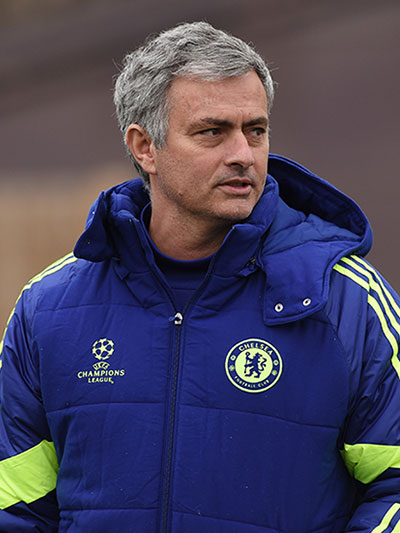
▲ José Mourinho (2004–05, 2005–06, 2014–15 Win)
♣ Playmaker of the Season
The Premier League Playmaker of the Season is an annual English football award, presented to the player who has made the most assists (the last pass made before a goal scored) in the Premier League. For sponsorship purposes, it was called the Cadbury Playmaker of the Season between its inception during the 2017–18 season and 2019–20 season. For the 2020–21 season, it was known as the Coca-Cola Zero Sugar Playmaker of the Season; since the following season it is known as the Castrol Playmaker of the Season.
In 2018, the Premier League Playmaker of the Season was first awarded, with Kevin De Bruyne of Manchester City its inaugural recipient. He is also the current and record holder of the award.
▲ Kevin De Bruyne (Multiple Win)
♣ Goal of the Season
The Premier League Goal of the Season is an annual football award for the player deemed to have scored the best goal in the preceding Premier League season.
The shortlist features each of the season's nine Premier League Goal of the Month winners and on occasion, such as in 2016–17 and 2018–19, a goal from May which does not have a monthly vote. The winner is decided by a combination of an online public vote — which contributes to 10% of the final tally — and a panel of experts.
The award was first given following the 2016–17 season and, since 2019–20, has been known by its sponsored name, the Budweiser Goal of the Season; the award had been previously sponsored by Carling for its first three iterations. In 2020, the Premier League backdated the award and named an unofficial winner for every season since its inception.
First recipient of the award was Liverpool's Emre Can for his bicycle kick away at Watford. The current holder of the award is Julio Enciso.
▲ Emre Can (2016–17 Win)
♣ Save of the Season
The Premier League Save of the Season is an annual English football award, presented to the goalkeeper deemed to have made the best save in the preceding Premier League season. For sponsorship purposes, it was called the Castrol Save of the Season since its inception during the 2021–22 season. In 2022, the Premier League Save of the Season was first awarded, with Jordan Pickford of Everton its inaugural recipient.
▲ Jordan Pickford (2021–22 Win)
♣ Goal of the Month
The Premier League Goal of the Month is an association football award that recognises the player who is deemed to have scored the best Premier League goal each month of the season from August to April. The winner is chosen by a combination of an online public vote, which contributes to 10% of the final tally, and a panel of experts.
At the end of the season, the nine monthly winners are put forward for the Premier League Goal of the Season, which is chosen using the same method, although the 2016–17 award featured, and indeed was won by, a goal from May which did not go to a vote.
The award was introduced for the 2016–17 season and is currently known by its sponsored name, the Budweiser Goal of the Month.
The first recipient of the award was Middlesbrough striker Cristhian Stuani for his away goal against Sunderland. Pedro was the first player to have won the award multiple times, while Andros Townsend was the first player to have won it three times, and the first to achieve it with different clubs. Thanks to Miguel Almirón (April 2022) and Allan Saint-Maximin (August 2022), Newcastle United was first club to have consecutive winners, while Wolverhampton Wanderers was the first to do it in the same season, with Jonny and Matheus Nunes winning March and April 2023 awards respectively. In the 2023–24 season, Manchester United became the first club to win four Goal of the Month awards, all scored by different players.
As of April 2024, the most recent recipient of the award is Chelsea player Cole Palmer.
▲ Bruno Fernandes (Multiple Win)
♣ Player of the Month
The Premier League Player of the Month is an association football award that recognises the best adjudged Premier League player each month of the season. The winner is chosen by a combination of an online public vote, which contributes to 10% of the final tally, a panel of experts, and the captain of each Premier League club. It has been called the Carling Premiership Player of the Month (1994–2001), the Barclaycard Premiership Player of the Month (2001–2004) and the Barclays Player of the Month (2004–2016); it is currently known as the EA Sports Player of the Month.
The Premier League was formed in 1992, when the members of the First Division resigned from the Football League. These clubs set up a new commercially independent league that negotiated its own broadcast and sponsorship agreements. The Premier League introduced new Manager of the Month and Manager of the Season awards for the 1993–94 season, supplementing the existing Football Writers' Association and Professional Footballers' Association Player of the Year awards. For the 1994–95 season, the Premier League introduced the Player of the Month award, which is presented alongside the Manager of the Month award. The first Player of the Month was awarded to Tottenham Hotspur player Jürgen Klinsmann for his performances in August 1994.
Sergio Agüero and Harry Kane have been Player of the Month the most with seven awards each. Nine players have won the award in consecutive months: Robbie Fowler, Dennis Bergkamp, Cristiano Ronaldo, Harry Kane, Jamie Vardy, Mohamed Salah, Bruno Fernandes, İlkay Gündoğan, and Marcus Rashford. Only Mohamed Salah and Marcus Rashford have won the award three times in a single season. Fernandes is the first player to win four awards in one calendar year. Eighteen individuals have won two awards in a season: Robbie Fowler, Dennis Bergkamp, Ruud van Nistelrooy, Thierry Henry, Wayne Rooney, Ryan Giggs, Cristiano Ronaldo, Ashley Young, Peter Odemwingie, Robin van Persie, Daniel Sturridge, Luis Suárez, Harry Kane, Jamie Vardy, Sergio Agüero, Son Heung-min, Bruno Fernandes and Erling Haaland. Robbie Keane has won the award while playing for three clubs, while twelve players have won the award playing for two clubs: Alan Shearer, Dion Dublin, David Ginola, Dwight Yorke, Tim Flowers, Teddy Sheringham, Danny Murphy, Andrew Johnson, Nicolas Anelka, Dimitar Berbatov, Scott Parker and Robin van Persie.
The award has been shared on six occasions: by Blackburn Rovers's Alan Shearer and Chris Sutton in November 1994, Liverpool's Robbie Fowler and Stan Collymore in January 1996, Southampton's Kevin Davies and Manchester United's Andy Cole in November 1997, Arsenal's Dennis Bergkamp and Edu in February 2004, Tottenham Hotspur's Dimitar Berbatov and Robbie Keane in April 2007 and Liverpool's Steven Gerrard and Luis Suárez in April 2014. More than four in ten of the Player of the Month awards have gone to English players, and almost a quarter of foreign winners have been French or Dutch. Michail Antonio became the first player to win the award with different nationalities, winning in July 2020 as an Englishman and in August 2021 as a Jamaican. Manchester United have had more Player of the Month awards than any other club.
As of April 2024, the most recent recipient of the award is Chelsea player Cole Palmer.
▲ Harry Kane (Multiple Win)
♣ Save of the Month
The Premier League Save of the Month is an association football award that recognises the goalkeeper deemed to have made the best Premier League save in each month of the season from August to April. For sponsorship purposes, it has been called the Castrol Save of the Month since its inception during the 2022–23 season.
In August 2022, the Premier League Save of the Month was first awarded, with Nick Pope of Newcastle United its inaugural recipient. Pope was also the first goalkeeper to achieve his second accolade for January 2023. Aaron Ramsdale became first goalkeeper to receive two consecutive awards, after scooping awards for March and April 2023. Chelsea became the first club to have two goalkeepers win the award, when Robert Sánchez claimed September 2023 accolade.
As of April 2024, the most recent recipient of the award is Manchester United goalkeeper André Onana.
▲ Aaron Ramsdale (Multiple Win)
♣ Manager of the Month
The Premier League Manager of the Month is an association football award that recognises the best adjudged Premier League manager each month of the season. The winner is chosen by a combination of an online public vote, which contributes to 10% of the final tally, and a panel of experts. It has been called the Carling Premiership Manager of the Month (1993–2001) and the Barclaycard Premiership Manager of the Month (2001–2004); it is currently known as the Barclays Manager of the Month.
The Premier League was formed in 1992, when the members of the First Division resigned from the Football League. These clubs set up a new commercially independent league that negotiated its own broadcast and sponsorship agreements. The Premier League introduced new Manager of the Month and Manager of the Season awards for the 1993–94 season, supplementing the existing Football Writers' Association and Professional Footballers' Association Player of the Year awards. The first Manager of the Month was awarded to Manchester United manager Alex Ferguson for his achievements in August 1993. For the 1994–95 season, the Premier League introduced the Player of the Month award, which is presented alongside the Manager of the Month award.
Ferguson has been Manager of the Month the most times with a record 27 awards. Harry Redknapp has had six spells managing Premier League clubs (West Ham United, Portsmouth, Southampton, Portsmouth again, Tottenham Hotspur and Queens Park Rangers), winning a Manager of the Month award in five of those spells. Sixteen other managers have won an award with two or more clubs: Gordon Strachan with Coventry City and Southampton, Stuart Pearce with Nottingham Forest and Manchester City, Martin O'Neill with Leicester City, Aston Villa and Sunderland, Roy Hodgson with Blackburn Rovers and Fulham, Rafael Benítez with Liverpool, Chelsea and Newcastle United, Brendan Rodgers with Swansea City and Liverpool, Alan Pardew with West Ham United and Newcastle United, Sam Allardyce with Bolton Wanderers and West Ham United, Tony Pulis with Crystal Palace and West Bromwich Albion, Mauricio Pochettino with Southampton and Tottenham Hotspur, Claudio Ranieri with Chelsea and Leicester City, Carlo Ancelotti with Chelsea and Everton, José Mourinho with Chelsea and Tottenham Hotspur, Nuno Espírito Santo with Wolverhampton Wanderers and Tottenham Hotspur, Eddie Howe with Bournemouth and Newcastle United, and Sean Dyche with Burnley and Everton.
The award has been won in consecutive months by 17 managers: Joe Kinnear, Kevin Keegan, Roy Evans, Alex Ferguson, Arsène Wenger, David O'Leary, Stuart Pearce, Paul Jewell, Rafael Benítez, Carlo Ancelotti, Manuel Pellegrini, Claudio Ranieri, Antonio Conte, Pep Guardiola, Jürgen Klopp, Mikel Arteta, and Ange Postecoglou. Guardiola is the only manager in Premier League history to have won the award in four successive months. Klopp is the first manager to win the award five times in a season. Postecoglou is the only manager to win the award in each of his first three months in the competition. The award has been shared on one occasion, in March 2002, when Liverpool manager Gérard Houllier was jointly awarded Manager of the Month with caretaker manager Phil Thompson, who had deputised while Houllier was absent for medical reasons.
As of April 2024, the most recent recipient of the award is Everton manager Sean Dyche.
▲ Alex Ferguson (Multiple Win)
♣ Winning players
The Premier League is an association football league that serves as the top tier of the English football league system. The league was founded in 1992 when the clubs of the First Division decided to break away from the Football League, as a commercially independent entity that negotiated its own broadcast and sponsorship agreements.
Since the 2012–13 season, a player needs to have played in a minimum of five matches for a title-winning team to qualify for a medal. This is down from the previous standard of 10 matches played. At the discretion of the Premier League board, additional medals can be awarded to players who played less than five matches. This special dispensation is usually reserved for back-up goalkeepers and players who did not make the minimum number of appearances through injury. For the first season in 1992–93, players received a miniature version of the trophy rather than a medal.
As of the end of the 2022–23 season, seven clubs have won the title – Manchester United, Blackburn Rovers, Arsenal, Chelsea, Manchester City, Leicester City and Liverpool – with 615 medals awarded to 300 players. Ten players have won the title with more than one club. Having won 13 Premier League championships, Manchester United have more title-winning players to their name than any other club, with 86 players awarded 247 medals. Ryan Giggs, who spent his entire career at the club, has won more medals than any other player with 13. Over a third of medals have been awarded to English players and the next most frequent nationalities of winners are French and Brazilian.
▲ Ryan Giggs (13 Season Win)
♣ Hat-tricks
Since the inception of the English football league competition, the Premier League, in 1992, exactly 201 players have scored three goals (a hat-trick) or more in a single match. The first player to achieve the feat was Frenchman Eric Cantona, who scored three times for Leeds United in a 5–0 victory over Tottenham Hotspur. 31 have scored more than three goals in a match; of these, five players, Andy Cole, Alan Shearer, Jermain Defoe, Dimitar Berbatov and Sergio Agüero have scored five. Sadio Mané holds the record for the quickest Premier League hat-trick, netting three times for Southampton against Aston Villa in 2 minutes 56 seconds, breaking Robbie Fowler's record. Six hat-tricks have been achieved in under 10 minutes; in addition to Mané and Fowler's, Defoe, Gabriel Agbonlahor, Ian Wright, and Andy Carroll have scored the quickest hat-tricks. In 1999, Manchester United player Ole Gunnar Solskjær scored four goals in twelve minutes as a substitute against Nottingham Forest, "the fastest scorer of a four-goal haul on record in England".
The fixture between Arsenal and Southampton at Highbury in 2003 saw both Jermaine Pennant and Robert Pires score a hat-trick for the home team. In 2007, Blackburn's Roque Santa Cruz and Wigan's Marcus Bent both scored hat-tricks in a match that Wigan won 5–3. In 2019, both Ayoze Pérez and Jamie Vardy scored hat-tricks as Leicester City defeated Southampton 9–0. In 2022, Manchester City's Erling Haaland and Phil Foden scored hat-tricks in a 6–3 victory over Manchester United in the Manchester derby. Only six players – Les Ferdinand, Ian Wright, Didier Drogba, Wayne Rooney, Erling Haaland and Harry Kane (twice) – have scored hat-tricks in two consecutive league games, while Thierry Henry achieved it in consecutive appearances a month apart.
Rooney's hat-trick on 10 September 2011 and Matt Le Tissier's hat-trick on 19 August 1995 were scored through set pieces, which consists of penalty kicks and direct free kicks. Everton's Duncan Ferguson and Salomón Rondón of West Bromwich Albion are the only Premier League players to have scored a hat-trick of headers. 36 different players have scored a "perfect" hat-trick in the Premier League since its inception, but only two players have achieved this feat more than once: Robbie Fowler has scored three (all for Liverpool) and Yakubu has scored two (one each for Blackburn Rovers and Everton).
Most number of hat-tricks scored on the same day is three, which happened twice in the history of Premier League: on 23 September 1995 Fowler, Shearer and Tony Yeboah registered hat-tricks, and on 2 September 2023 Evan Ferguson, Erling Haaland and Son Heung-min scored three goals each.
Most number of hat-tricks scored in one season is 19, which happened twice: in 1993–94 (with 462 games played) and 2011–12 season (380 games played). On the other end, 2006–07 season saw only 3 hat-tricks scored. Alan Shearer has scored the most hat-tricks in a single season, with five during the 1995–96 season.
Sergio Agüero has scored three or more goals twelve times in the Premier League, more than any other player. Alan Shearer is second with eleven hat-tricks; Robbie Fowler has scored nine, and Henry, Kane and Michael Owen have each scored eight hat-tricks. Five players have each scored hat-tricks for three different clubs: Yakubu (Blackburn, Everton and Portsmouth); Nicolas Anelka (Arsenal, Chelsea and Manchester City); Kevin Campbell (Arsenal, Everton and Forest); Les Ferdinand (Newcastle United, Queens Park Rangers and Tottenham) and Teddy Sheringham (Manchester United, Portsmouth and Tottenham). Four players have scored hat-tricks and still ended up on the losing side: Matt Le Tissier (twice), Dion Dublin, Roque Santa Cruz and Dwight Yorke.
The youngest player to score a Premier League hat-trick was Michael Owen for Liverpool, when he scored his first league hat-trick against Sheffield Wednesday on 14 February 1998 at the age of 18 years and 62 days. The oldest scorer of a Premier League hat-trick is Teddy Sheringham with an age of 37 years and 146 days playing for Portsmouth against Bolton Wanderers on 26 August 2003.
The Dubious Goals Committee has sometimes decided after a match that players have not scored hat-tricks because one of the goals was incorrectly credited to them. Southampton player Egil Østenstad was thought to have scored a hat-trick against Manchester United in 1996, but the committee ruled that one of the goals be credited as an own goal to United's Phil Neville. Anelka's first goal for Manchester City in September 2002 was later credited as an own goal to Everton's Tomasz Radzinski. Javier Hernández was denied a hat-trick against Aston Villa in November 2012 after the committee ruled his second goal was actually an own goal by Ron Vlaar.
▲ Sergio Agüero (13 Hat-tricks)
♣ Hall of Fame
The Premier League Hall of Fame is an online association football hall of fame for the Premier League, the top division of the English football. The Hall of Fame is intended to recognise and honour players and managers that have achieved great success and made a significant contribution to the Premier League. The Hall of Fame was announced in 2020 and the first inductions took place in 2021.
Inductees are awarded an engraved medallion, and attend a formal induction ceremony attended by other inductees and friends and family.
Hall of Fame eligibility requirements
For players to be eligible for induction into the Premier League Hall of Fame players need to have retired before the start of the awarding season, and are only judged on their domestic performances in the Premier League with no other competitions considered. Additionally, players must have made 250 appearances in the league, or achieved one of the following:
- Appeared in more than 200 Premier League appearances for one club
- Selected to any of the Teams of the Decade
- Won the Golden Boot or Golden Glove
- Been voted as Player of the Season
- Won three Premier League titles
- Scored 100 Premier League goals, or goalkeepers who have recorded 100 Premier League clean sheets
▲ David Beckham (inducted in 2021)
▶ Premier League Go Page
▶ Player Records and statistics Go Page
 Premier League
Premier League La Liga
La Liga Bundesliga
Bundesliga Serie A
Serie A Ligue 1
Ligue 1 Liga Portugal
Liga Portugal Eredivisie
Eredivisie Süper Lig
Süper Lig MLS
MLS Série A
Série A J1 League
J1 League Saudi Pro League
Saudi Pro League WSL
WSL Première Ligue
Première Ligue NWSL
NWSL







 Chapter 11. Records & Awards > Premier League Awards
Chapter 11. Records & Awards > Premier League Awards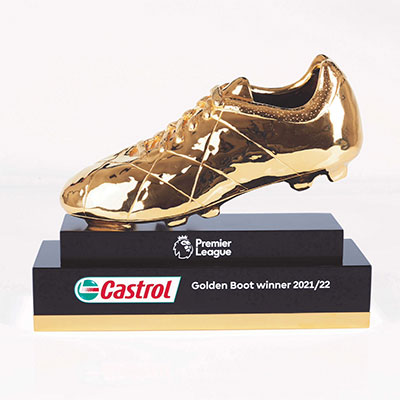
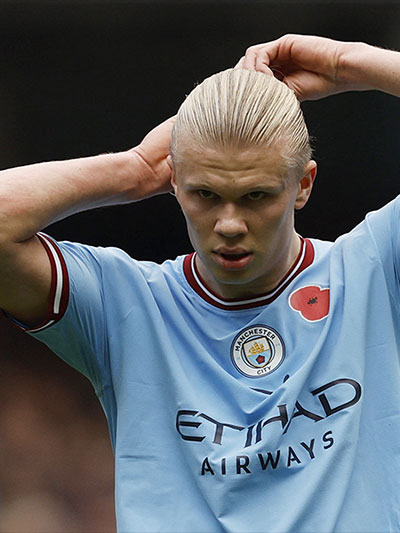
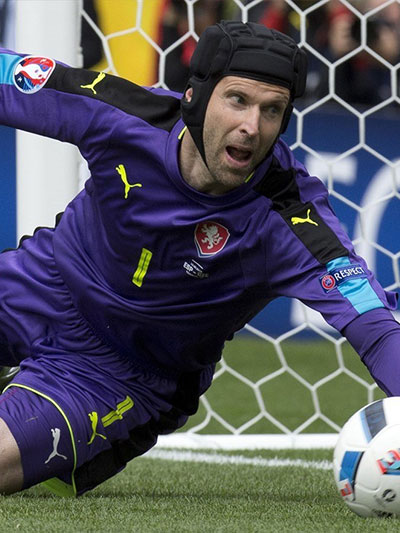
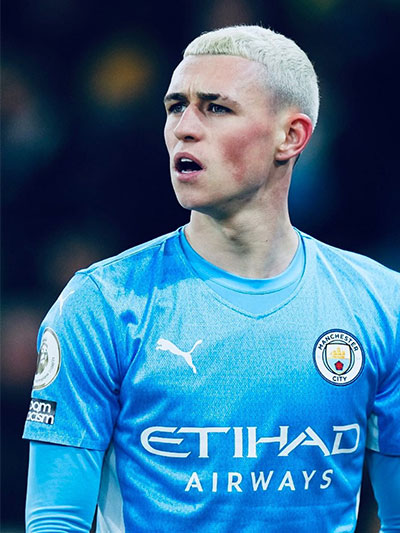



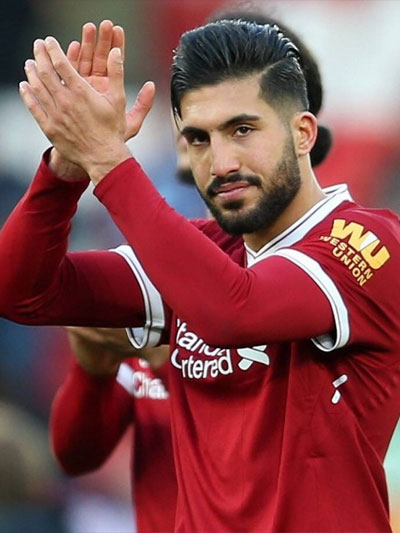
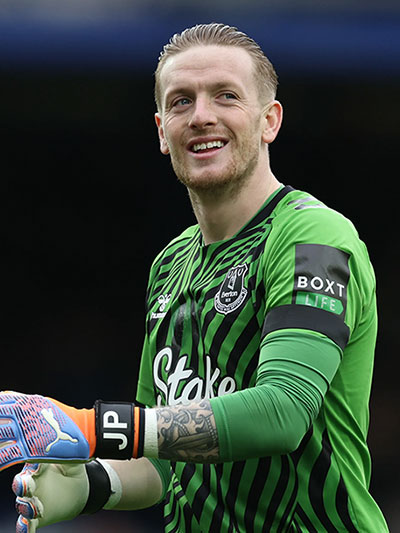
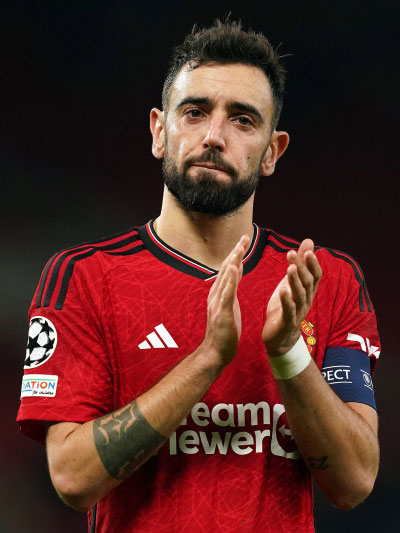
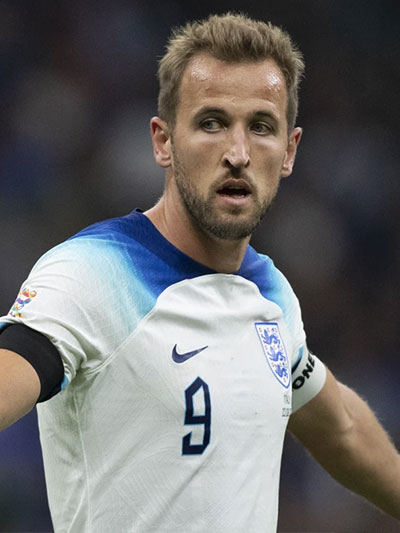
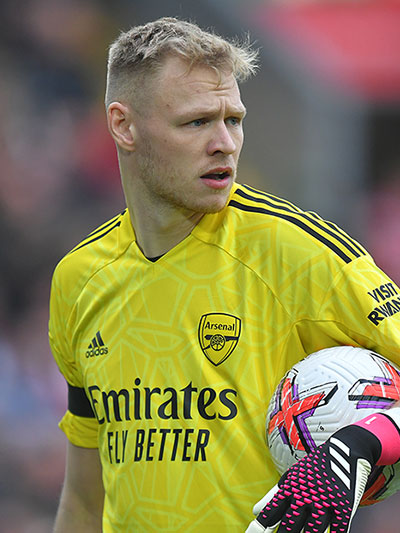
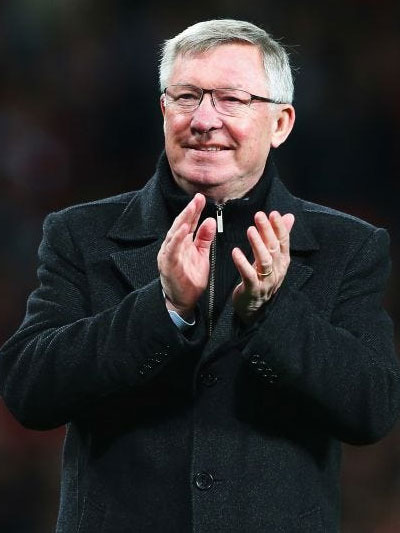
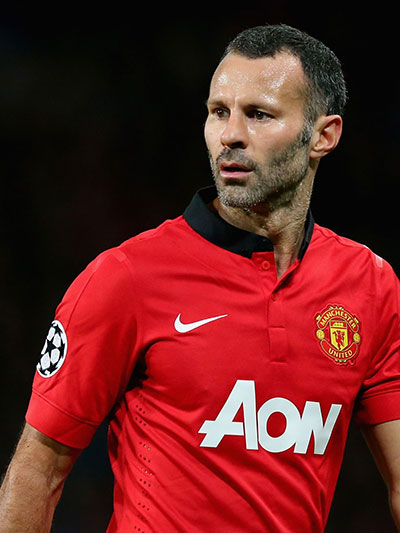
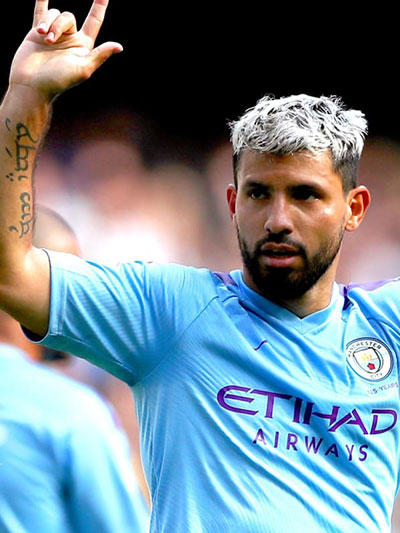

 •Wikipedia
•Wikipedia








